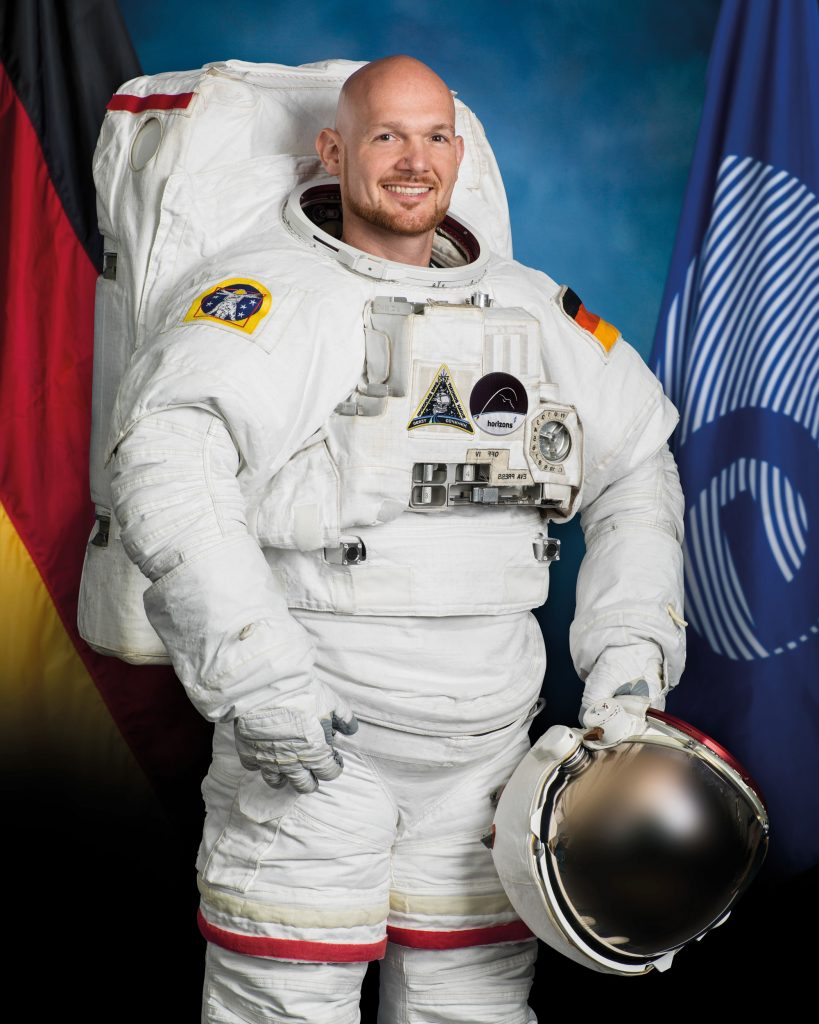Alexander Gerst´s new mission to ISS
‘horizons’ – this is the name of German ESA astronaut Alexander Gerst’s next mission to the ISS. On 6 June 2018, the 41-year-old geophysicist will embark on his second journey to the International Space Station (ISS) with Expedition 56/57. In August, Gerst will become the frst German and second European to be Commander of the ISS. During an expected 187 days – until the beginning of December 2018 – Gerst will be at an altitude of approximately 400 kilometres. The name of the mission, horizons, symbolizes the curiosity and fascination of discovering and exploring the unknown.
Research on the ISS and the horizons mission provide important contributions and impulses for addressing societal and global challenges, for example with regard to increasing digitalisation, climate change and Industry 4.0. Germany is the most important partner for ESA ISS elements and European ISS usage. After all, the ISS is a unique and innovative laboratory and test environment for experiments that cannot be performed on Earth.
In the mission, 50 experiments with German participation will be contributed by scientists from German universities and research institutes, German industry and DLR as a research centre. The thematic spectrum ranges from biological and medical experiments to (astro-) physical and materials science issues, through to technology demonstrations, an experiment programme for children and young people, as well as industrially or commercially motivated applications. The Columbus space laboratory, the scientifc heart of European research on the International Space Station ISS, is also celebrating its tenth anniversary this year. DLR has overseen the development and production of the ISS module on behalf of the European Space Agency (ESA), is actively involved with experiments at the research level and manages operations from the Columbus Control Center in Oberpfaffenhofen.
German Aerospace Center (DLR)
Volker Schmid · E-Mail: volker.schmid@dlr.de · DLR.de/en
